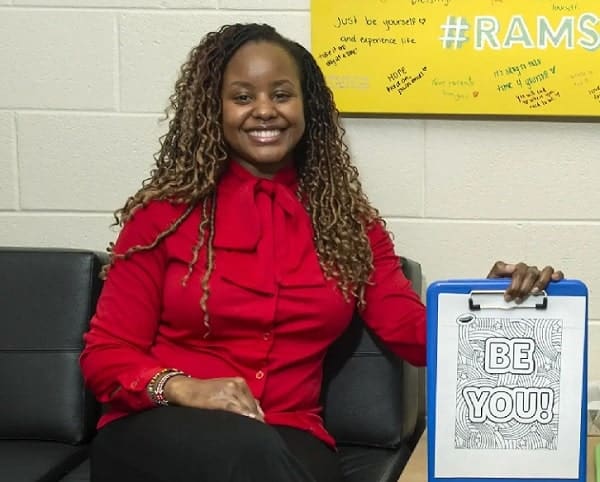
Kenyan Diaspora Abey Muthoni Wachira, Ph.D is part of staff psychologists with University Counseling Services at Virginia Commonwealth University, and she specializes in intercultural issues. She brings personal perspective to her work.
Wachira grew up in Kenya and was fascinated watching documentaries on the human brain. After immigrating to the U.S., “I [realized] when I came here that culture plays a very big role in terms of adjustment, in terms of how people deal with concerns like stress, anxiety and different things that might come up associated with migration,” she said.
In college, “I really gravitated to counseling psychology because I felt like based on the research I was doing and what people were sharing with me, it kind of helped connect everything – mental health, social issues, cultural issues, identity issues, immigration issues.”
Challenges for international students
With her co-worker Kim, Wachira highlighted a range of issues that international students can face as part of the culture shock of living and studying in a host country, whose norms and values can vary from their native lands.
One is that each student’s period of acculturation can vary in time and intensity. Wachira added that students who immigrate with parents or relatives, or who are the children of immigrants, may have variations in the way they acculturate, leading to family conflicts.
Language barriers can also be tough for international students. This makes it difficult to communicate with and even relate to others, even if the student is well-spoken.
“Accent is also something that tends to come up,” Wachira said. “Depending on how strong your accent is, it might impact how people respond to you or whether or not they’re able to connect easily with other people.”
And then there’s the stigma of mental health in general. Wachira said that depending on the messages they have gotten from people in their lives, international students may be concerned that if they speak to a mental health professional, they might be perceived as “crazy.” Or they might think their situation needs to be particularly dire before reaching out to a counselor.
Normalizing the experience
Kim and Wachira said one of their top goals is to normalize the struggles these international students are facing. They often have never been in these situations before – they are goal-oriented high achievers who can be hit hard by classroom challenges based on cultural, language or communication issues.
“At the beginning when they experience [these issues], they have no idea how long it’s going to take for them to adjust,” Kim said.
The counselors give students a space to talk about their challenges. Wachira asks students how they feel about seeking out therapy. “That’s where the validation and the normalizing happens,” she said.
Wachira looks to establish a connection with clients and get to know them before delving into how to reach their mental health goals. It’s about “building that connection, that relationship and that safety before we can now start to do the deeper work,” she said.
Where to get help
Students seeking mental health support can start by visiting the University Counseling Services website, where the identity-based resources include a category for international students. In addition to individual therapy, Counseling Services offers group therapy sessions, relationship counseling and support groups. One is the International Student Discussion Hour that Wachira hosts every other week.
Also available is Timely Care, a 24/7 virtual mental health service offered through VCU. Students can download and use the app for crisis or emotional support, or for booking counseling sessions. Kim said students being able to schedule appointments themselves can help ease the barrier to reach out.
Wachira said if students aren’t sure about seeking therapy, they first can sign up for a consultation to articulate their reservations and any other questions.
Kim added that students don’t have to be experiencing serious issue to seek services.
“If they are struggling, if they are having a hard time figuring out resources on campus, then they can come and talk to a clinician and the clinician will help them to figure out what would be the best service they can get,” she said, which doesn’t always mean therapy.
Wachira noted that for therapy to be effective, a client must commit to the process without force. That means it can take time.
“Whenever they’re ready or whenever they feel comfortable,” she said, “we are always going to be available.”
By Amelia Heymann
Source-https://news.vcu.edu/
Abey Muthoni: Kenyan Diaspora psychologist helping immigrant Students at VCU








Interesting
Very interesting.
Not my old sneaky link offering alternative therapy sessions to immigrants. Congrats abigail! I miss those fire sessions back in nccu. Lets reconnect, You know where to find me.